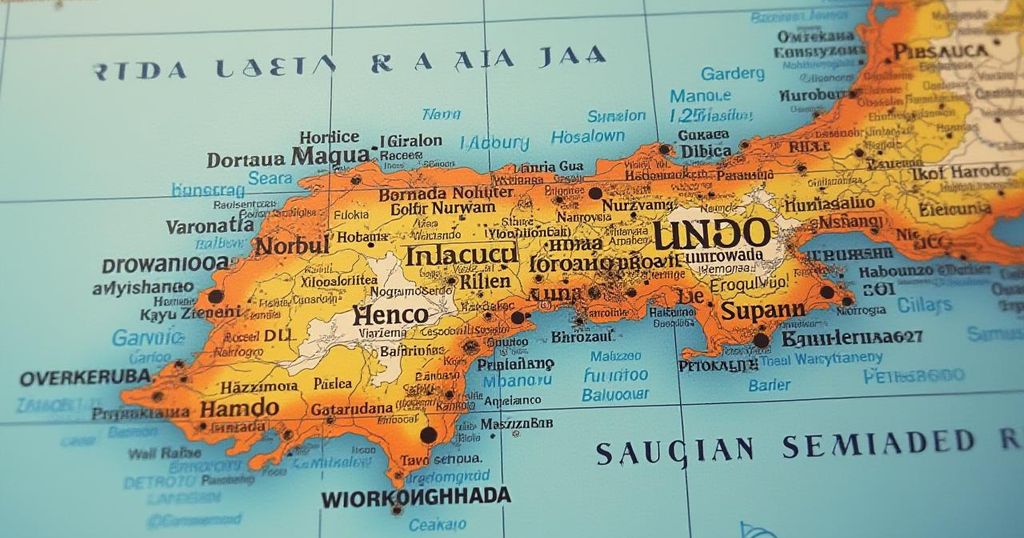During a ministerial meeting in Swakopmund, Namibia, on October 14-15, 2023, Namibia and South Africa expressed solidarity with Cuba and Venezuela amid significant economic sanctions. They condemned Israel’s actions in Lebanon, requested the lifting of sanctions against Zimbabwe, and addressed the self-determination of the Sahrawi people regarding Western Sahara.
On October 14 and 15, a significant ministerial meeting in Swakopmund, Namibia, was presided over by Foreign Ministers Peya Mushelenga from Namibia and Ronald Ozzy Lamola from South Africa. This gathering displayed a robust commitment from both nations to support Cuba and Venezuela, which currently grapple with substantial economic challenges exacerbated by unilateral sanctions. The ministers particularly highlighted the longstanding economic, financial, and commercial blockade against Cuba, calling for an immediate cessation of this policy, which has been enforced by the United States for over sixty years. Additionally, the meeting took a firm stance regarding the bombing of Lebanon by Israel, characterizing it as a grave violation of both sovereignty and international humanitarian standards. The ministers urged the international community and the United Nations Security Council to adhere more closely to international law. Furthermore, the session addressed the issue of Zimbabwe, with a strong demand for the immediate and unconditional lifting of sanctions that severely hinder the socio-economic development of Zimbabwe and adversely affect the Southern African region. Important discussions also encompassed the situation in Western Sahara, where the recent ruling by the Court of Justice of the European Union (CJEU) on October 4, 2024, was welcomed, notably criticizing the European Commission for infringing upon the right to self-determination of the Sahrawi people.
This article discusses a meeting between the foreign ministers of Namibia and South Africa, which reflects a broader context of solidarity among African nations towards Latin American countries facing sanctions. The sanctions against Cuba and Venezuela have prompted international responses, not only in terms of human rights and sovereignty issues but also concerning broader geopolitical dynamics involving Israel, Zimbabwe, and the self-determination rights in Western Sahara. Namibia and South Africa’s support for these nations can be seen as part of their long-standing political alignment against external sanctions and for the rights of oppressed states.
The meeting held in Swakopmund underscores the commitment of Namibia and South Africa to advocate for countries impacted by unilateral sanctions, particularly emphasizing the case of Cuba. Furthermore, the ministers’ calls for action against violations in Lebanon and Zimbabwe reflect a broader dedication to upholding international law and regional solidarity within the Southern African context.
Original Source: www.plenglish.com







